U.S. national security and foreign policy officials expressed cautious optimism after Iran and Saudi Arabia agreed to restore diplomatic ties on March 10, 2023. “We welcome the agreement between Iran and Saudi Arabia,” said John Kirby of the National Security Council. But “it really does remain to be seen whether the Iranians are going to honor their side of the deal,” Kirby added. In a joint statement, Iran and Saudi Arabia had affirmed their respect for the “sovereignty of states” and “non-interference in internal affairs.” The United States hoped that the deal, brokered by China, would lead to a broader de-escalation of tensions in a region divided between the competing interests of the two Gulf powerhouses. For years, Iran and Saudi Arabia have backed opposing sides in the Syrian and Yemeni conflicts and have competed for influence in Iraq and Lebanon.
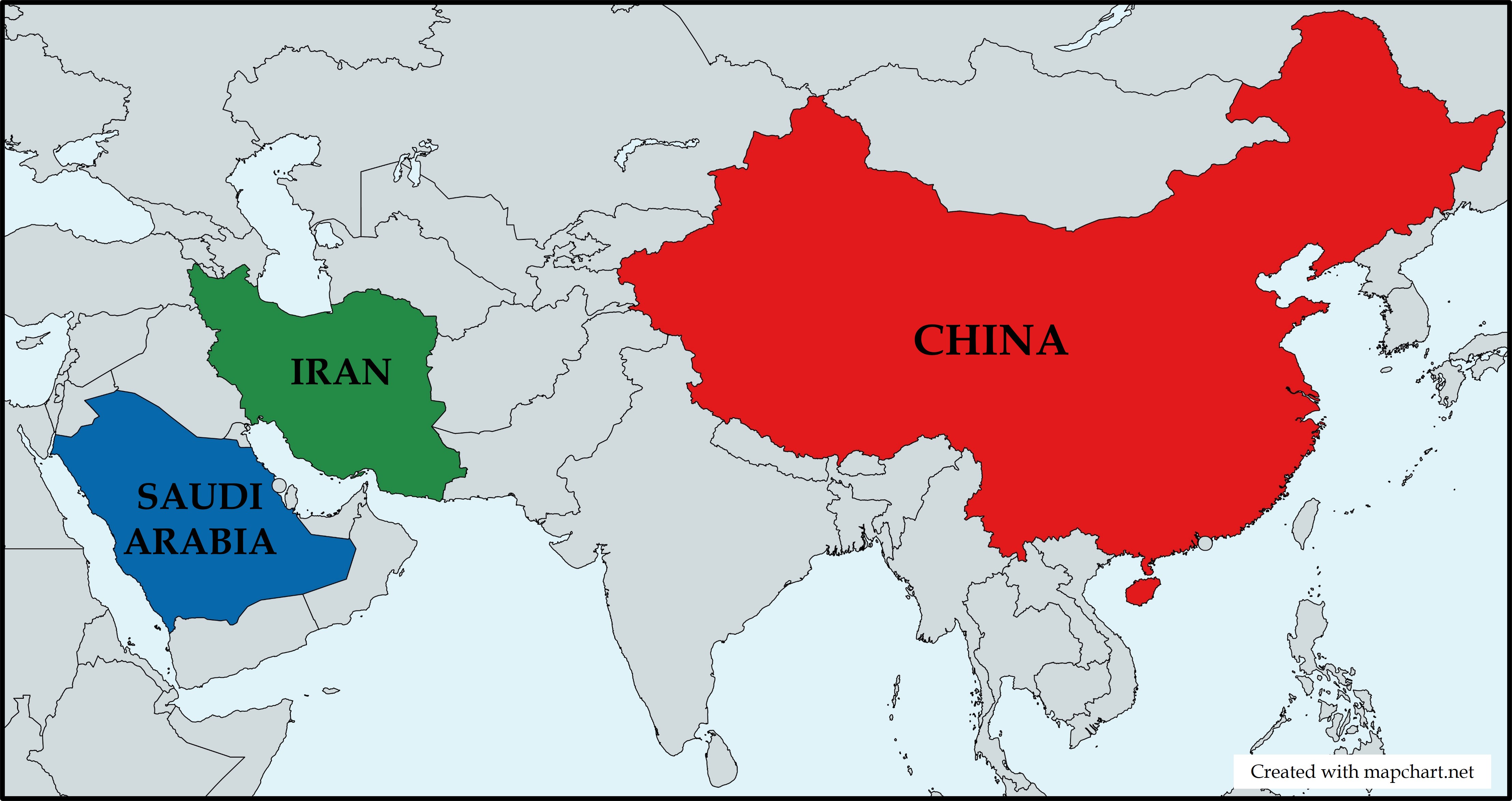
Beijing’s diplomatic leadership reflected its growing leverage in the Middle East. China has long sought regional stability to maintain access to Iranian and Saudi oil. The diplomatic breakthrough was widely interpreted as a sign of waning U.S. influence in the region, which Washington rejected. “Having other countries like China promote de-escalation is not fundamentally averse to U.S. interests,” National Security Advisor Jake Sullivan said. “Frankly, it’s, in a way, rowing in the same direction.” The United States was in “close touch” with Saudi Arabia throughout the talks, he explained. Washington was “not in a position to be a mediator,” he said, because it had no formal diplomatic relations with Tehran. In 2021 and 2022, the United States had supported talks between Iran and Saudi Arabia facilitated by Iraq. The following are quotes from U.S. officials on the Iran-Saudi rapprochement and China’s role in the deal.
Secretary of State Antony Blinken
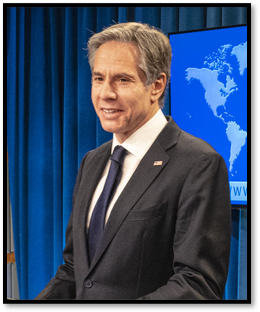
In remarks on March 15, 2023: “With regard to the agreement reached between Saudi Arabia and Iran with China’s involvement, from our perspective, anything that can help reduce tensions, avoid conflict, and curb in any way dangerous or destabilizing actions by Iran is a good thing. And as you know, in this particular case, the Saudis and the Iranians have been talking for some time going back a couple of years, including in Baghdad and in Oman. And to the extent that China facilitated conclusion of this agreement to restore diplomatic relations, that’s a good thing. And I think it’s valuable that countries, where they can, take action, take responsibility for advancing security, for advancing peaceful relations. And if this agreement actually bears out, and particularly if Iran follows through on the commitments that it’s apparently made, again, that would be positive.”
National Security Advisor Jake Sullivan
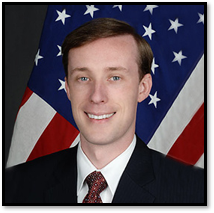
In remarks on March 13, 2023: “With respect to the recent understanding that was reached between Iran and Saudi Arabia and Beijing, as John Kirby said on Friday, this is something that we think is a positive, insofar as it promotes a goal the United States has been promoting in the region, which is de-escalation, a reduction in tensions. That’s a good thing.
“We were in close touch with Saudi Arabia as they were approaching and engaging in those talks. And they were keeping us apprised of their progress along the way. So, from our perspective, even as we put a lot of muscle into — diplomatic muscle into trying to help promote de-escalation, as with the Yemen truce, having other countries like China promote de-escalation is not fundamentally averse to U.S. interests. Frankly, it’s, in a way, rowing in the same direction.
“We’re not in a position, of course, to be a mediator between Saudi Arabia and Iran, given our relationship with those two countries. We never have been and we aren’t today in such a position.”
National Security Council Coordinator for Strategic Communications John Kirby
In a press briefing on March 14, 2023: “We welcome the agreement between Iran and Saudi Arabia, which we hope can lead to an end to the Yemen war and attacks on Saudi Arabian soil by Iran-backed rebels in Yemen. But that remains to be seen.”
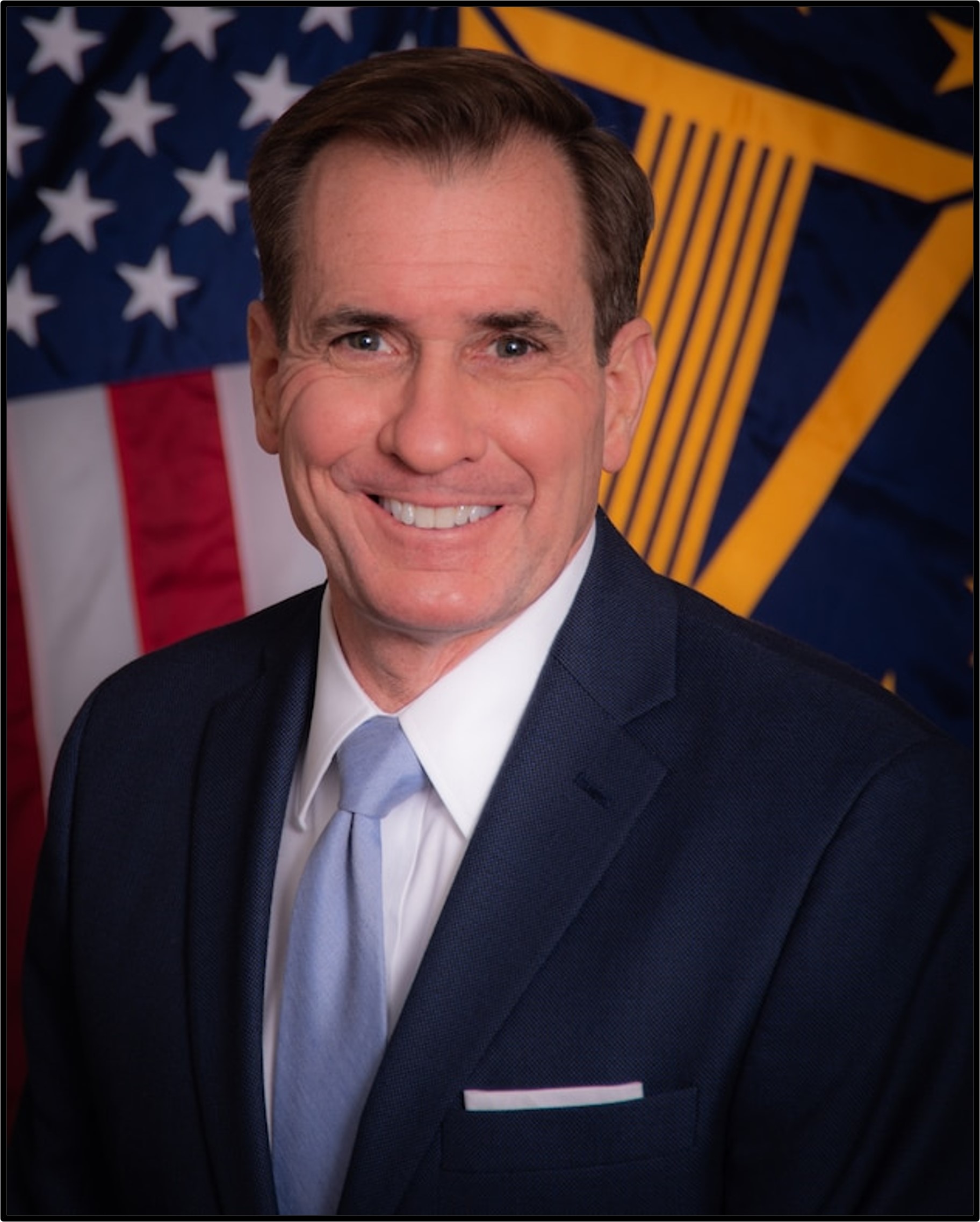
“[China expanding the deal toward a return to the JCPOA is] a hypothetical that we’re just not able to answer at this point in time. The JCPOA is not on our agenda. We are not focused on it. We’re focused on holding Iran accountable for the way they're treating their own people and supporting Russia’s war in Ukraine, as well as terrorist elements throughout the region. In other destabilizing activities. And I just wouldn’t get ahead of where we are right now.”
In remarks on March 10, 2023: “Generally speaking, we welcome any efforts to help end the war in Yemen and de-escalate tensions in the Middle East region. De-escalation and diplomacy together with deterrence are key pillars of the policy President Biden outlined during his visit to the region last year.”
“The Saudis did keep us informed about these talks that they were having, just as we keep them informed on our engagements, but we weren't directly involved.”
“We support any efforts to de-escalate tensions there and in the region. We think it's in our interests, and it's something that we worked on through our own effective combination of deterrence and diplomacy.”
“It’s not clear that this arrangement affects [Saudi normalization with Israel] or is designed to deal with that, but we obviously continue to support normalization.”
“If this deal can be sustained — regardless of what the interest was or who sat down at the table — if it can be sustained, and the war in Yemen can end, and Saudi Arabia doesn't have to continually try to defend itself against attacks from the Houthis who are funded and supported by Iran, in the end we welcome that.”
“It really does remain to be seen whether the Iranians are going to honor their side of the deal.”
“It appears to us that this roadmap announced today was the result of multiple rounds of talks, including talks that were held in Baghdad and Oman. And we've always supported that process as we've seen, to work hard towards an end of the war in Yemen, and to an end to Iran's aggression, quite frankly.”
“We believe that what likely helped bring Iran to the negotiating table in Saudi Arabia is in fact the pressure that it's under internally as well as an effective deterrence against attacks from Iran or its proxies on Saudi Arabia. And we, as you know, help support Saudi Arabia and their effective deterrence capabilities.”
“As for Chinese influence there, or in Africa or Latin America, it's not like we have blinders on.”
“We certainly continue to watch China as they try to gain influence and footholds elsewhere around the world in their own selfish interest. And you're starting to see countries around the world wake up to the fact that China's influence is in their own selfish interest.”
State Department Spokesperson Ned Price
In a press briefing on March 13, 2023:
Question: “I want to ask you about China’s involvement in the Middle East and what that means. Does this in fact sideline the United States to have China mediating between Iran and the Saudis?”
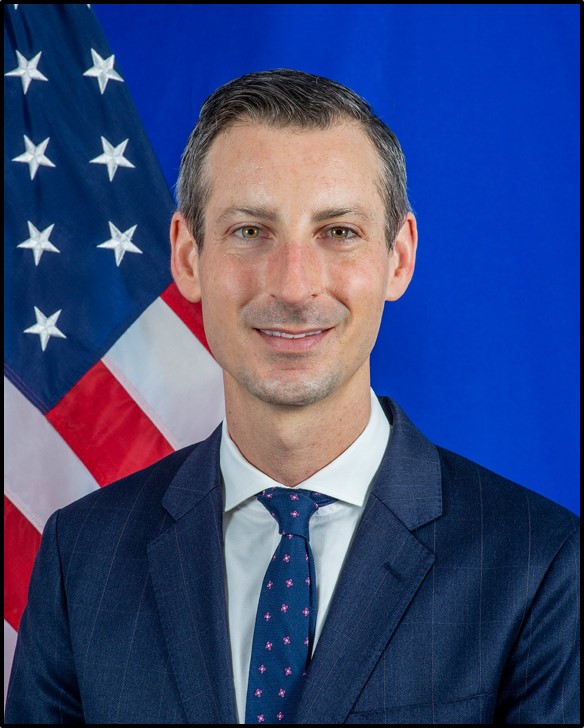
Price: “We support dialogue, we support direct diplomacy, we support anything that would serve to de-escalate tensions in the region and potentially help to prevent conflict. If this is the end result of what was announced in recent days, that would be a very good thing. This is a process that has unfolded over the course of some two years now. We have, as I said before, encouraged it. We have supported it. The substance of the joint statement that was issued late last week is quite similar to what has been discussed during previous rounds. This is a process that has gone through Oman. It has gone through Iraq. And we have been there supporting it in every – at every step of the way.”
“We’ve been doing that because, again, anything that would serve to de-escalate tensions and to prevent conflict is in our interest. It’s in the interest of the region. Any efforts that would help to end the war on Yemen, also manifestly in our interests; of course in the interests of the countries in the region as well. We believe it’s long overdue that Iran cease activities aimed at destabilizing its neighbors. Should Iran, as an outcome of this agreement, again, change its longstanding behavior and actually take steps to respect the sovereignty and noninterference in the internal affairs of its neighbors, that would be beneficial to the region; that would very much be in our interest.”
“When it comes to our role in the region… this was not about [China]. This was about what Iran and the Kingdom of Saudi Arabia committed to. When it comes to our role in the region – and whether, as I’ve read, our role may be being supplanted, some allege – I have a difficult time wrapping my head around our role could be supplanted when no country on Earth has done more to help build a more stable, a more integrated region.”
“So I think in any way you look at it, America is deeply engaged with the Middle East. We have demonstrated results in those efforts to leave a region that is more stable, is more integrated, is more prosperous. We have a long way to go, but everything we’ve done over the past couple years points to what we’re trying to achieve.”
Question: “Do you feel that this deal can actually bring tensions down? Does it scale back the tension that was building up and the fear of some sort of a military confrontation with Iran?”
Price: “If the deal is fully implemented, of course it has the potential to de-escalate tensions between these two rather large countries in the Gulf. I think you have to take a look at where we were just a couple years ago and even in some ways just a couple months ago. Several years ago – 2019 I believe it was – the attack on the part of the Iranians against Saudi Arabia, the potential for attacks that our Saudi partners have endured since then, including as recently as late last year when the United States worked with our Saudi partners to enhance defensive and deterrence capabilities that ultimately mitigated what was the very real possibility of further Iranian aggression against Saudi Arabia.
“So yes, both in the theoretical sense and in a very real and practical sense, if Iran takes the steps that it has pledged to take, we believe it would.”
Question: “What did the Saudis say on their normalization prospect [with Israel], or what is your assessment whether you think it’s going to be more complicated, or is this going to somehow help at all?”
Price: “This ultimately is a question for Israel and Saudi Arabia. It is a process that we support. It’s a process that we’ve supported. It’s a process we’ve discussed with both of our partners. But this is a question for Israel and Saudi Arabia.”
Question: “When the Saudis were informing you of what was happening, were you in turn informing Israelis? Were you keeping them in the loop on a daily basis or frequently?”
Price: “We have close relationships with both countries. We consult regularly. As we’ve said before, we were not taken by surprise by the announcement that came out on Friday. Our Saudi partners had kept us up to date. We engage regularly with our Israeli partners.”
